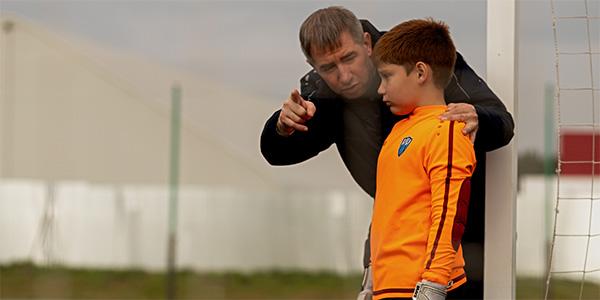
What to do When Your Athletes Isn’t Self-Motivated
Sports parents often face the dilemma of how to motivate their children. Should sports parents have to motive children to participate? Or should sports kids be purely self-motivated?
What is self-motivation? Kids who are self-motivated engage in sports for the pure enjoyment of the activity. They do not need rewards to participate.
Many kids are only motivated by their parents to play. When children are only motivated to participate in sports by their parents, they participate to gain respect or impress parents. They don’t want to disappoint them.
Parents can be a strong motivator for kids in sports as long as they use the right type of motivation. Your best option is to help you kids be self-motivated. They’ll likely be more committed to sports over time.
How You Can Help As a Parent
If your kids have a genuine passion for the game, they will most likely stay involved longer. You do not want your kids to be motivated to satisfy you. Kids who are motivated by their parents may drop out of sports because they feel that they can’t perform up to their parents’ expectations or feel too much pressure.
Parents should ask young athletes to set their own goals. Parents can set their own goals for their children, but your children will not necessarily adhere to them. Your goals may not be your child’s goals. When athletes set their own goals, they take “ownership.” They will be more likely to commit to their own goals than the goals you give them.
Sports psychology research indicates that external rewards such as trophies, medals or money can undermine self-motivation. Athletes learn to play for the external rewards. If you motivate kids this way, then you remove those external rewards, kids can become less motivated.
Parents should know what motivates their children in sports. Do your kids participate in sports to be with friends, be part of a group, for the competition or to gain social support? The key to motivating young athletes is to tap into what excites them about playing and performing For example, if an athlete enjoys sports because it provides friendship, parents should find experiences that would support this need.
Parents should also model enthusiasm about sports to improve kids’ motivation. Your enthusiasm is contagious! You can do this by showing interest. Ask your kids about practice, for example. Be supportive during games, or simply smile and cheer.
As one option, parents can create a commitment contract to help motivate their kids. A commitment contract is a written statement or series of statements that kids promise to follow. These statements can identify your children’s personal or practice goals. Parents and kids together can create statements for the contract. The parent and child sign the contract. The contract can be placed where children see it–a bedroom or kitchen, for example–so they are reminded of their goals each day.
What are the positive effects of a commitment contract? First of all, kids focus on what’s important. Goals can help them focus on improving their skills. In addition, a commitment contract can enhance kids’ enthusiasm for sports. Parents who are involved and interested can help their kids feel motivated.
However, if you and your child do sign a commitment contract, be sure that you don’t forget about it. If you do, your child may feel you don’t have much enthusiasm about his or her participation in sports. Don’t let your children forget about commitment contracts, either. This might hurt their focus or excitement about practices or games. And be flexible. The contract may need to be changed to meet your child’s changing needs.
Related Sports Psychology Articles
- Give Sports Kids Tanglible Goals
- How Impatience in Youth Sports Leads to Burnout
- Tips for Improving Competitiveness in Sports
*Subscribe to The Ultimate Sports Parent Podcast
*Subscribe to Peak Performance Sports on Youtube
Download a free sports psychology report to improve your mental game!
Sports Psychology Coaching for Young Athletes

One-on-one mental performance coaching is the fastest and most effective method to improve your athletes’ mental game, boost their performance, and make lasting changes. And as a bonus, parents learn what to say to help young athletes feel confident and thrive in sports. Please call us at 888-742-7225 with your questions.
